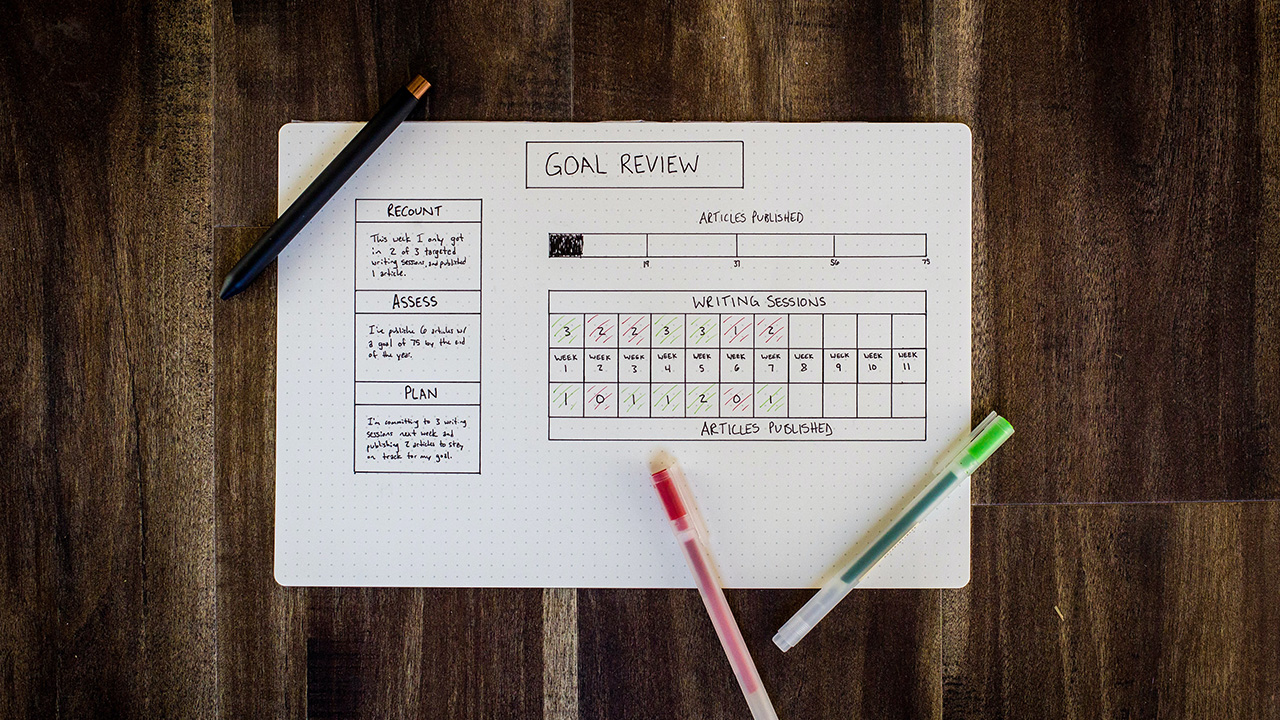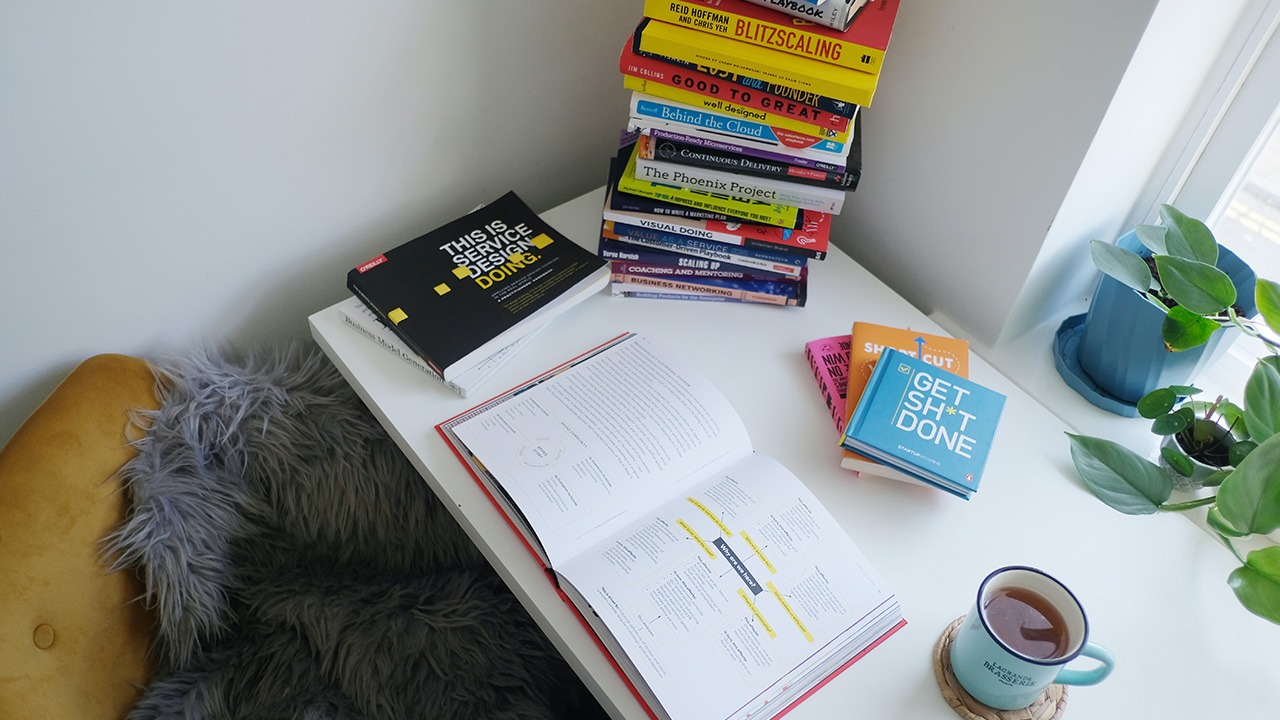Time Management - Designing the Perfect Study Routine
Sep 11, 2021
Ever heard of the phrase - fail to prepare, prepare to fail?
It’s a saying that is often used in English to express that without good preparation, failure is inevitable.
Interestingly, the most common question I get as a business English coach is not how students can express themselves in meetings, nor is it how they can give effective presentations, but actually how to study when they have little to no time.
Most business English learners lead super-busy lives. They work at least 40 hours a week in the office, they do copious amounts of overtime answering important emails from customers and colleagues, and they try to do all of that with a demanding family and an active social life. On top of that, they also want to improve their business English skills to boost their career prospects.
It seems impossible.
Is it though? From my experience, the main reason why students can’t find the time to study and improve their language skills is not that they simply don’t have any time left in the day, it’s that they’ve never been taught how to plan and use their time effectively.
In today’s blog, that all changes. I’m going to share with you 10 essential tips to master your time management when it comes to learning business English and how to design the perfect study routine.
Let’s do this!

Why Do Students Struggle to Find The Time to Study?
The reason why students struggle to find the time to study is because they constantly wing it. To ‘wing something’ means to do or try to do something without much practice or preparation. And this is precisely why they have difficulties in finding the time to polish their language skills.
Now, you may be thinking that this is the student’s fault, and to some degree it is. But the real culprits here are the so-called ‘English teachers’ who have actually never taught them how to set up a great study routine that fits around their busy lives.
It’s like buying a brand new smartphone for the first time with no instructions. You have the product but have absolutely no idea how to use it and incorporate it into your life.
At We-Speak-Business, we understand that our students are busy and find it hard to dedicate time to studying and learning business English. That’s why our teachers aren’t only trained to teach business English, but they’re also trained to help students grow in other areas of their lives. How to manage their time, how to be productive, and how to actually learn English both conveniently and effectively.
My ‘German nightmare’
I spent a good three years of my life living in Germany where I held business English workshops and in-house training for German companies. It was also the place where I started my very first teaching business. Naturally, I wanted (and needed) to learn German, so I decided to get some books and take some classes.
At the very beginning, I thought it was going rather well. I was learning some more words, started to get to grips with the grammar rules, and could have a basic conversation in German. But after a few short months, my learning and progress came to a complete halt.
I racked my brains for weeks trying to figure out why it was that I wasn’t learning much anymore. I immediately looked at the materials I was reading, the methods my teachers were using, and I even started to pick holes in the language itself. But the real truth was that it wasn’t any of those things that were causing this frustrating plateau.
It was me.
The thing was - I didn’t have a study routine and I was ‘winging it’. When I looked at how I was studying, it became much clearer to me that it wasn’t the books or the teachers’ fault, it was my system that was stunting my language learning growth.
I never set goals for myself, I never looked at how I was studying the language, and when I did study, it was always in these random sporadic bursts. I had no intent and no idea how to effectively plan and use my time wisely.

This was all until I approached another German teacher and explained to him my problem. I’ll never forget the advice he gave to me. He said: “Andrew, the problem is not that you don’t know what to learn, but that you don’t know how to learn it.”
When I heard this it hit me like a ten-foot truck. It was because it was so true! Think about it - when a student wants to learn business English, they know they have to learn the difference between formal and informal language, and they know they need to attend some lessons and read some books, but they rarely know how to do it.
How do you attend classes when your boss is breathing down your neck every day demanding more work out of you? How do you read some English books or business articles when your son is constantly asking you to play Cowboys & Indians?
Once that teacher taught me the value of creating a study routine, everything changed for me. The process of learning became quicker, easier, and much more enjoyable.
But my experience with this one teacher was more than just that. It solidified my love for teaching, and that we can truly make a difference in someone’s life through sharing knowledge and information with others.
Let’s now take a look at our 10 tips for designing the perfect study routine.

Tip #1:Focus on Daily Consistent Practice - Not Cramming!
Most language learners try to do everything at once and get burned in the process. This is perhaps the number one reason why a lot of people fail - they take on too much and give themselves a small amount of time to do it.
We’ve all been there - it’s Sunday and you decide you’re going to sit down and study for 8 hours the next day. No distractions, no excuses. So you sit down on Monday and do your 8 hours. Afterward, you feel accomplished and triumphant, but the very thought of sitting down the next day for another grueling 8 hours makes you want to stick pins in your eyes. So you put down the books and do nothing the rest of the week.
The thing is - this is one of the least productive and effective ways to learn. By burning the candle at both ends, you’re setting yourself up for failure, because you’ve used all of your motivation, discipline, and inner strength on that one day, that you don’t have anything left to give for the rest of the week.
Learning a language or any skill requires daily practice - not cramming. Studying for smaller chunks of consistent time is more effective than studying for 8 hours on 1 day and nothing else for the rest of the week
Instead of giving it 110% one day and then nothing else for the rest of the week, break that time up into smaller, manageable chunks. For example, if you want to do 1 study session of 8 hours, break those 8 hours up into 5 shorter study sessions.
Not only will you get daily practice, but you also avoid burnout and have the time to digest the information you learned the previous day.

Tip #2: Decide Which Areas You Want to Focus On And How Much Time You’ll Dedicate to Each Area
A lot of business English learners will take a very sporadic approach to their language learning. One day they’ll do a bit of grammar, then they’ll practice their pronunciation a bit and then they’ll learn some vocabulary and they just seem to aimlessly bounce from one thing to the next without really giving it any serious thought.
To set up a good study plan, you need to know which areas of the language you want to practice. One way to do this is to write down all of the areas of English or business English that you want to learn.
For example, you might write down:
- Vocabulary: signposting language for presentations
- Grammar: continuous verb tenses
- Pronunciation: word stress
- Reading: business articles about technology
- Writing: formal emails
- Speaking: daily practice
I would then recommend scoring yourself on a scale of 1-10 on how confident you are in each of those areas. Be honest with yourself but also don’t be too self-critical. The areas that you don’t feel as confident in might need a little extra time than the others.

Tip #3: Use Google Calendar
Anyone that knows me will know I am a big fan of using a calendar - Google calendar in particular! Not only is it highly accessible, but it integrates perfectly with other Google products and you can set reminders for appointments.
If you haven’t already gotten a Google account - well, you don’t need me to tell you to set one up…
Once you’re inside Google Calendar, you’ll want to block out all of your fixed appointments for the upcoming week. That includes work time (the time you’re in the office at work), any social or family events you have coming up, and any other important things you need to do or places you need to be (dentist appointments, haircuts, shopping trips, etc).
When you’ve done that, you should be able to see how many remaining hours you have left for the week. Those are the hours that you will dedicate to learning and practicing your business English skills.

Tip #4: Be Realistic About Your Goals and Intentions
Tip number 4 is a big one, because a lot of the time, business English learners are not so realistic when setting goals and intentions. They see they have 10 hours to study, so they decide that that’s how many hours they have to study for.
Whenever I see or hear someone do this, I die a little inside.
It’s because I know and they know that it just isn’t going to happen. Most people don’t allow for a buffer, and when things come up (which they will), they end up deferring from their routine which demotivates them in the process.
My solution is this - if you have 10 hours to study, then don’t shoot for 10, shoot for 5. Half the amount of time you have in the first week and see how that goes first before upping the number. This way, you’ll have that buffer to allow for those inconveniences, but also it’ll make your study sessions much more manageable and realistic.
Asses at the end of the week how you did with your beginning ‘low’ number and adjust accordingly.

Tip #5: Find Effective and Suitable Study Material
One of the things you’ll need to do before setting out is to take a level test. You can take one online for free either here, or, you can find a teacher who will test your level for you. We offer business English level tests for all of our We-Speak-Business Unlimited students so they know their exact level before they start our courses.
If you’re self-studying, you’ll then need to invest in some good materials. I recommend books as they’re the cheapest and are proven to work and get results. Below I have listed a few good business English books that I have used in the past:
- Market Leader by John Hughes
- Business Result by Bill Mascull and Lizzie Wright
- New International Business English by Leo Jones
If speaking is something you want to really improve on and you have a slightly higher budget, your best bet would be to find a good business English program with professional native-speaking teachers.
Our program We-Speak-Business Unlimited is just that. An interactive live speaking program where students from around the world can attend and speak business with other like-minded professionals and native-speaking teachers every single day. You can learn more about our courses here.
Once you have chosen your material, it’s time to start plugging in those study sessions.
Tip #6: Block Out Time for Studying
Once all of your other commitments are scheduled, start blocking off your study sessions. Go to Google Calendar and create an event. Type the name of the area or chapter you will focus on that particular day. If you’re attending live classes, you’ll need to decide which classes are possible for you to take. When you join We-Speak-Business Unlimited, we use a tool that will automatically add your classes into your calendar and even convert them into your local timezone (how cool is that?!)
Now it’s all well and good writing your study sessions into a calendar, but we’ll need to be reminded of them when they’re coming up. That’s why Google Calendar is so awesome because it allows you to set reminders for each created event. I would recommend setting a reminder 1 hour prior to the study session starting. You can even create 2 or 3 reminders if you’re a little forgetful.
In terms of focus and concentration during the study session itself - I highly recommend using the Pomodoro technique. It’s basically a system where you will do uninterrupted, focused work for 50 minutes, followed by a ten-minute break. You can also do 2 25-minute sessions with 2 5-minute breaks as well. If you’re someone who struggles to focus and needs that little push in the right direction, then the Pomodoro technique is for you.
Finally, reward yourself after each session. Each person has their own idea of what a good reward might look like. For me, it’s always an episode of my favorite TV show - The Simpsons.
Whatever form of reward you choose, it’s really important that you give yourself a big pat on the back. This will motivate you to study the next day and keep that upward trend going.

Tip #7: Have a Backup Plan
So now that we’ve looked at how to set our study schedule up, we need to have a system in place to prepare for those unexpected events that might throw us off course. This is why a backup plan is absolutely vital - there will be times where you can’t commit to your full study session and we need to plan for this in advance.
My main bit of advice here is that when you can’t sit down and study for your full session, replace it with a short 3-5 minute ‘emergency study session’. What you learn in these emergency sessions is entirely up to you, but I recommend that you simply review material you’ve learned the day or week before.
Let’s say you planned to study for an hour at 3PM this afternoon, but your boss has called and needs you to come into the office and do some overtime. When this happens, simply go to your calendar and move the block of time to a different time (on the same day) and shorten it to a 5-minute ‘review’ session.
This way you are still getting daily exposure to the language, but they’re also perfect opportunities to remind yourself what you’ve learned in the days prior.
Everyone has 5 minutes even if they’re off their feet. Instead of watching Netflix before bed, get out your books or folder instead. Really pushed for time? Not a problem - practice saying your long and short vowel sounds out loud in the shower.
Whatever happens, we can maintain our consistency by always having some sort of backup plan when we are forced to abandon our study sessions.

Tip #8: Track and Monitor Your Progress Each Week
At the end of each week, write a list of each thing you studied and write an honest review on how you think you did. Give yourself a score out of ten for each area and write a note on what you need to pay particular attention to the next week.
One of the best people to read up on when it comes to skill progression is the American olympic swimmer Rowdy Gaines. If his swimming coach set him a goal of holding his breath underwater for 1 minute and 20 seconds, the next day he would try to hold it for 1 minute and 21 seconds. The following day he’d shoot for 1 minute 22, then 1 minute 23, and so on. Note how Rowdy Gaines didn’t try to hold it for an extra 5 seconds or 10 seconds - he knew the importance of realistic goals.
So each day or each week, set yourself a target of improving even if it’s only by a fraction of what you did the day before. Daily improvement on any level is something we should all strive for, and so should you!
Tip #9: Plan Your Week Ahead on Sundays
“For 6 days man shall work, and on the 7th day, he shall rest.”
Remember to take breaks, give yourself a day off from the books, and use that time to plan your week ahead. I recommend Sundays because generally speaking this is when most people don’t work and have much more free time.
On Sunday afternoon or evening, I would start planning my upcoming week by again, going to my calendar and blocking off those fixed appointments and obligations. I would then draw up my new study schedule for that specific week.
This final step really is key if you want to be consistent and stick to your schedule. If you end up deferring from it, it’ll be more difficult to get back on track. If you do fall off the horse, then just get straight back on.
Remember - the only real way you can fail is if you give up. So don’t beat yourself up if your schedule doesn’t go as planned. You’re a human and you make errors like everyone else. Giving up, though, is the worst thing you can do and is the only way you can fail.
Tip #10: How Life-Changing Habits are Formed
It takes 28 days to form a new habit. If you can stick to your schedule for just 28 days, the chance of it becoming a lifetime habit increases significantly.
Forming life-changing habits requires discipline, not motivation. Motivation is a myth - we all have times when we’re not motivated and we shouldn’t depend on motivation as to whether we’re going to do something or not. Instead, we need to work our self-discipline if we want to make a habit stick.
A good way to stay disciplined is to find an accountability partner. You can choose a friend, colleague, family member, teacher, or a speaking partner to help keep you accountable. At the end of each week reach out to your partner and check in with them to share how you’ve both done that week. If your partner has done really well and stuck to their routine and you haven’t, that’s going to push you, even more, to be better the next week.
What is We Speak Business Program
We Speak Business is an English course with live speaking lessons for English learners who want speaking practice with native speakers, professional teachers, and students from around the world.
You have live speaking lessons where you can join and start speaking business English every day. There's a lesson every day and also, you can review all record lessons. There is a lot of conversation practice for each level of English (A2, B1-B2, C1). There is a calendar of scheduled lessons so you can see when lessons are and at what time you can join and start speaking.
In We Speak Business program, you have 24/7 support and also you have student chat where you can speak with other students from all around the world. Before you join our program and start speaking business English, we strongly recommend you sign up for our free seminar with Andrew Smith, where you can learn:
- What goals you need to have to get better results
- How to master business English quickly
- What are the strategies that will help you advance to a higher level
- How you can speak business English more fluently and confidently
- Free resources to help you learn business English
- Exclusive resource to improve your speech
If you are looking to improve your speaking skills at work, then we have an exclusive free seminar where I teach you how to speak better business in 30 days. Sign up by clicking the button below!



